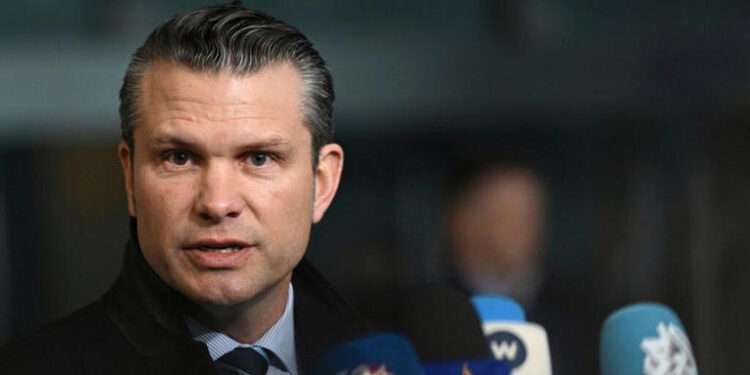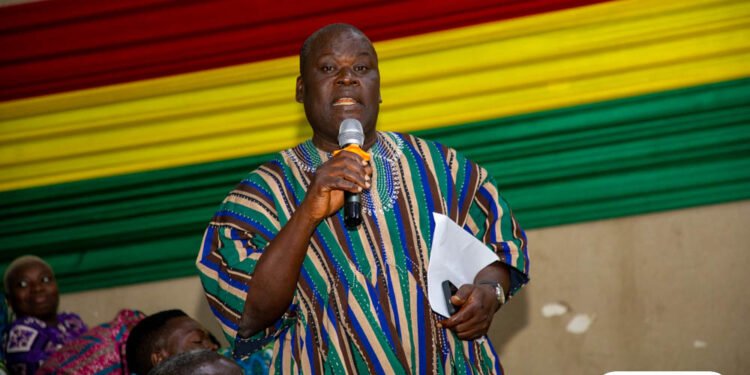In the past few weeks, the cocoa sector has come under the spotlight for various reasons. First, concerns have been raised by government, farmers and other cocoa sector players about the implications for the sector as the European Union (EU) seeks to finalize its proposed forthcoming legislation on deforestation and corporate sustainability due diligence, which has already received majority support by Members of EU Parliament.
Another concern has to do with the activities of illegal mining posing a real threat to sector. Recent reports quoted the Ghana Cocoa Board as expressing concerns in the context of widespread increased illegal mining activities negatively impacting on production figures. Some farmers are reported to have given their cocoa farms out to illegal miners. Sadly, Ghana missed its projected production target of about 800,000mt in the just ended 2021/2022 cocoa season. In the midst of the above concerns, climate change and farmer poverty continue to impact heavily and further threaten the sustainability of the sector.
Cocoa and the cocoa sector are not only economically important for Ghana but also politically strategically critical. The cocoa sector has, historically, been the backbone of the Ghanaian economy. Several households in Ghana depend directly on the cocoa sector for livelihoods, and aspects of the cocoa industry, such as input supplies to farmers and cocoa pricing, have historically featured prominently in national and local politics. It is estimated that, the average cash income solely earned from cocoa is about 80-90% of the total household income. Ghana is currently the world’s second largest cocoa producer with an annual production of between 800,000MT and 900,000MT of beans.
Earnings from the export of cocoa beans and cocoa related products amounted to US$2.2 billion in 2018. Estimated contribution to GDP in real terms in 2021 is quoted at around US$533 million. Ghana over the years through COCOBOD has been able to raise receivables-backed syndicated loan each year from the international money market to finance its cocoa purchases. Just in the last few weeks, Ghana successfully raised US$1.3 billion for the purchase of cocoa beans for the 2022/2023 cocoa year. This demonstrated the strategic importance of the cocoa sector and the need to do everything for its sustainability.
The EU proposed regulations and implications
The new proposed forthcoming EU legislation on deforestation and corporate sustainability due diligence will ensure that product such as cocoa, palm oil, coffee, timber, soya, beef and their derivatives originating from supply chains connected with deforestation are restricted or prohibited completely from entering the European Union market. This the EU considers as a practical demonstration of meeting their commitment to sustainability targets as nations pledged to halt and reverse deforestation by 2030 at the UN COP26 at Glasgow, Scotland.
From a critical analysis perspective, the EU is leveraging on its unchallenged advantage of being, by far the largest importer and consumer of cocoa in the world – the majority of it from West Africa. At the moment, The EU is the world’s largest importer of cocoa, accounting for 60% of world imports. In 2021, Ghana, Côte d’Ivoire and Cameroon jointly supplied cocoa into the EU market in value of €4.6 billion.
When this regulation comes into force there certainly will be a number of implications for Ghana. The legislations will ensure the restoration and preservation of the country’s depleting forest cover thereby reducing greenhouse gas emissions and climate change impact. However, in the case of non-compliance with the new requirements, there would be dire consequences for the country’s economy and the livelihoods of smallholder producers, who would be the most adversely affected. This has the potential to cause farmers to abandon cocoa farming for a more remunerative crops such as rubber or others activities like illegal mining.
What has been the story and the current state of the sector
Even though there have been significant changes in the agrarian political economy of Ghana since the colonial era, some remnant of that era continues to be entrenched in the fundamental structure of the cocoa sector. For example, the British colonial administration (1874–1956) promoted the production of export crops, notably cocoa and other crops to feed British industries and also to raise revenue for the colony.
The colonial administration was also in favour of production by peasant farmers rather than state plantations or larger scale private plantations. The colonial administration did not make any attempts to intervene in the existing land tenure arrangements for fear of agitations by the locals. After independence, the Nkrumah government made efforts to promote state-owned large-scale plantations, in line with its socialist ideology, however, this effort did not work in the cocoa sector and over 80 per cent of cocoa are still produced by peasant farmers.
Currently, after decades of cocoa production, many cocoa farmers still live below or at the poverty line. Ghana and Africa still rely on selling raw cocoa beans to external buyers particularly big European multinational companies with unmatched power in the cocoa value chain. This leaves the nation vulnerable and at the mercy of the dictates of the EU governments, companies and consumers. According to the International Cocoa Organization (ICCO), Ghana’s cocoa consumption capacity 2020/21 was estimated at 322,000 MT and is projected to reach 330,000 MT for the 2021/2022 season. COCOBOD is reported to have indicated that, the country currently processes only about 40% of cocoa beans produced locally and aims to increase to 50% in the coming years.
We surely as a nation cannot continue to allow this to be the narrative. There is greatest need for fundamental structural reform now than anytime. Guided by lessons already learned from the last decades of production and trade in cocoa, we now know better what works and what does not.
The Way forward into a Sustainable Cocoa Future
So, at this juncture it important to ask; What will the cocoa sector in Ghana look like in the next two decades? Will the historical and present tales and missed opportunities remain the narrative? Or will the sector become self-reliant in production and in consumption controlling pricing and production levels? The answers to these questions should certainly be the arrival of the new dawn and the Ghana cocoa sector revolution.
Moving into the next decade, I propose a complete nationalization of the cocoa sector as the way forward into a sustainable cocoa supply chain free from all the ills. Nationalization not in the business-as-usual approach of state managed large plantation or certain cocoa/chocolate day events or some fussy slogans. Nationalization in this new dawn must be a carefully thought through process, that target critical fundamental revolutions in the cocoa sector. These revolutions should be structured on non-negotiable timelines from short to medium term (next five years) and the long term (10 years and beyond).
There must be a deliberate stimulation to ensure that in the long-term exports will be restricted to only value-added cocoa products. This will ensure national ownership and generate decent jobs for the population. The nation, Ghana, will be in control of the production, processing and consumption. The nation must leverage on the African intercontinental free-trade arrangement to increase the trade of processed cocoa targeted at the over 1.2 billion Africans within the continental free trade zone. With a nationalized cocoa sector, Ghana will be less vulnerable to the dictates of the EU and other markets and will stand better and strong negotiating trade agreements relative to cocoa in the long term.
Needed interventions
Cardinal to the cocoa sector revolutions, I propose the interventions below:
- Engage the EU based on Ghana specific contextual socio-economic and environmental reality of cocoa producing farm families. Ghana in the short term, must be decisive on its position regarding the new legislation and insist on co-legislation and joint definitions and clarification of terms as contained in the proposed legislation. Already, I’m aware that the country has taken some steps to meet some of the criteria in the drafted EU legislation as COCOBOD has rolled out a cocoa management system in readiness for a credible national traceability system which is key on the current discourse.
- In the engagement, there should be deliberate step to bring farmers to the table. Any law/regulations for farmers that does not consider the views of farmers is not for farmers. Both Ghana and the EU governments should take steps to bring all categories of farmers along to avoid leaving anyone behind. It is crucial that capacities of farmers and their organizations be built to enable compliance when the regulations are finally mutually agreed on in the short-term. There should be support systems in place for these farmers to tap into to make compliance easy. A study should also be carried out to assess the impact of the regulation on farmers to avoid any unintended consequences.
- Address issues of farmer poverty not just through the living income and the so-called fair pricing approach but also by social safety net approach through one off direct cash transfer to targeted farmers particularly in periods of the cocoa production season when cash from cocoa is no more available. For a fairly true pricing even when achieved is often insufficient to push the farmers out of poverty. Farmers must be empowered to grow beyond farming for survival to obtaining profit margins necessary for the needed investment in their cocoa farming as a business. This is the only way there can be a national citizens take over and issues of child labor, human right and deforestation can be eliminated in the cocoa supply chain. For example, if farmers can afford hired labor and provide jobs that support a living wage a social problem like child work, can be eliminated.
- Critically, Ghana must take an uncompromising stand that, the EU clearly include Living Income as Human Rights in the regulation. Currently, the regulation is only focusing on Deforestation and Child Labor. Living Income is the foundation through which challenges such as deforestation and Child Labor could be addressed. This therefore needs to be clearly acknowledged and addressed in the regulation. if there is a proper security, farmers will work with better motivation. There must be a guaranteed income for Cocoa farmers like EU gives to dairy milk farmers in Europe.
- Indiscriminate and firm enforcement of existing laws on illegal mining and other environmental and land use offence. This can be done without any need for nationally constituted special operations or taskforce as has been the approach in the past. The existing security arrangement in fighting any other crime across should be used. With this there will be local security ownership of the fight against the crime of illegal mining hence security agencies in the community, districts and regions where the act still continues can be held fully accountable.
- Under take radical land tenure reforms, first by developing a spatial land use plan that maps existing cocoa farms and areas considered suitable for cocoa production and declare such mapped areas as protected lands dedicated only for cocoa production and other agricultural use. Second reduce the barriers to make land acquisition for cocoa production much more easy and secure. Develop land parcels and make them available for large scale plantation strictly by only Ghanaian citizens. This will attract youth, women and the landless cocoa farmers to invest in the sector to make up for the aging cocoa farm and farmer population. In the long term the state can take over the administration of such lands with benefit sharing arrangement that do not disadvantage the original land owners. This will completely address the illegal mining problems since local people and traditional leader can no longer give out lands. They certainly cannot give out what they do not own.
- The state must commit an ambitious large cash investment to develop irrigation infrastructure particularly in locations around the Bono, Bono East, and parts of Ashanti. This will make it possible to re-establish and rehabilitate old cocoa farms and growing areas that were lost to the 1983 wild fires and increase climate change events. Already it is reported that farmers in the transition zone are increasingly replanting their farms with cocoa. A government intervention through the above mentioned will further facilitate their efforts. Also, COCOBOD should redirect its ongoing rehabilitation of farms to areas with moribund farms that are relatively less prone to CSSVD and illegal mining activities. This is a more guaranteed way to secure and sustain increase production levels.
In conclusion, as a nation determined to change the fundamental structure of our economy, we must be guided by the Dagara folk wisdom that, ‘Niri wa pal3 fo Si3mi migru a, fo mi pal3 na a o kokori migru’ (meaning if someone is weaving a rope to tire your waist, you should also weave one to tire his or her neck) in the context of the pending EU regulations and the unrepentant illegal mining cartels. Our rope for the neck certainly is the complete nationalization of the cocoa sector from production to consumption.
By
Zuobog Philip Neri
Agricultural Economist and Food Security specialist with background in Cocoa and Forest issues.
PhD Candidate in Agricultural Economics-UDS, Tamale
Email: nwinbobr@gmail.com























